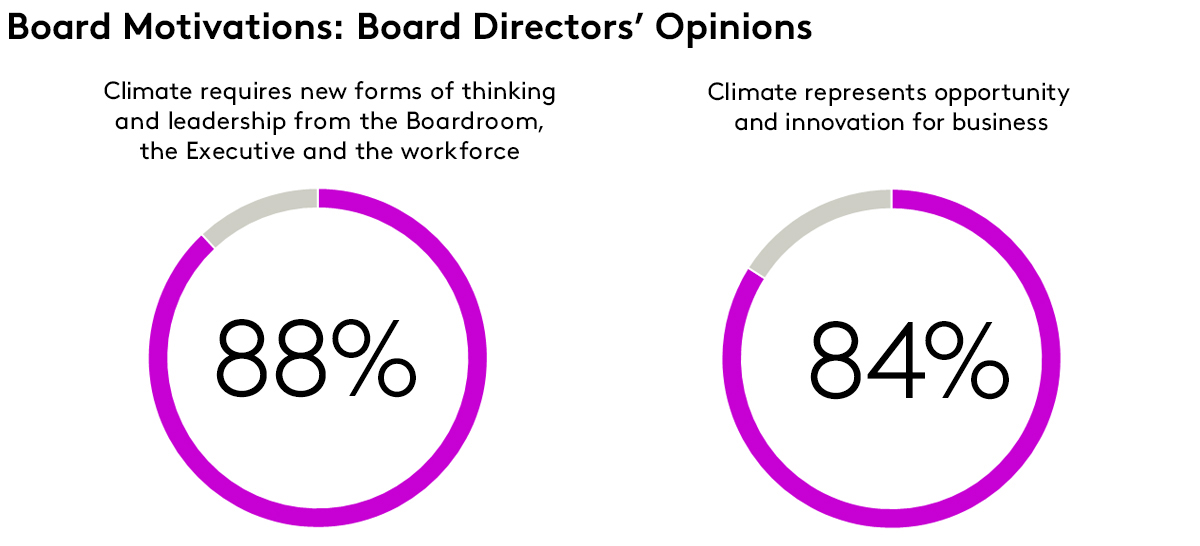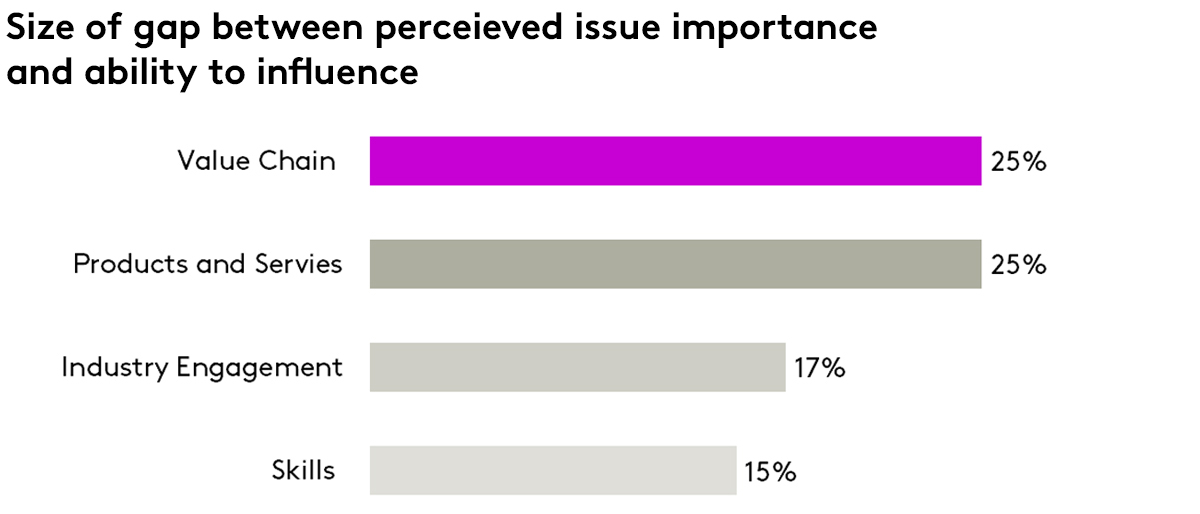With global political upheavals and a rollback on ESG characterizing the first few months of this year, the “Empowering Board directors to drive climate action” study, conducted in partnership with the Climate Governance Initiative, is a timely temperature-check on the perspectives of some of the most senior people in global businesses.
Crucially, the research found that board directors do feel they have the opportunity to influence decision-making around sustainability. 96% of the 240 board directors surveyed able to impact their organization’s direction on climate change. Additionally, 89% believe it is part of their role to do so.
More than four in five board directors (84%) report that climate change is a mid-high priority on their board’s agenda, rising to 89% of chairpersons interviewed. Of the six countries surveyed, board members in the UK are most likely to be prioritizing climate, with 94% saying it’s a mid-high priority, compared with 74% in the US.
Climate action is therefore visibly on the table and there is both a desire and a feeling of responsibility to act upon it.
The positive drivers
Multiple factors are providing the impetus and the tools for businesses to engage with taking climate action. These range from regulatory necessity and better integrated reporting systems, to encouraging creative problem-solving within businesses with regard to climate change issues.
"Regulators play a very strong role in putting the pressure on and creating that awareness" (Board Director)
"The first step was to get the reporting and the measurements correct and then we’ll talk about the remediations that are possible in that area" (Board Director)
Additionally, board directors report that they are making investment steps in line with climate change needs, as key steps towards powering future growth.
Other businesses are focusing on their internal capability gaps, upskilling and raising awareness around sustainability. This approach provides the tools for their people to understand the challenge and to shape the related behaviors to act upon it.
There is seemingly a wealth of new activity going on and yet the tide has not turned with regard to businesses leading – or even managing to make real headway against – the climate change challenge. So what, or who, is getting in the way?
It’s an opportunity… that remains a challenge
The challenge in tackling the impacts of climate change starts right at the top of businesses, within the leadership teams. A significant shift in attitudes, behaviours and capabilities is perceived by 88% of board directors as being required to truly embed climate action within businesses.

The opportunities that climate offers are almost as considerable as the new thinking required – and one cannot happen without the other. Much progress is underway, with 75% agreeing that climate is driving new forms of collaboration and partnerships and 69% saying that climate will transform their business model over the longer term.
So if most board directors are motivated, the opportunities are seen and climate change action is on many agendas, what else is stopping focused action from happening more widely?
Tackling climate action in a challenging geopolitical context
The economic situation remains a difficult context for businesses with stakeholders to appease and turbulence to navigate – and climate action is often a casualty.
"Climate has been pushed off the agenda in recent years, particularly with the rise of cost-of-living pressures, inflation, geopolitical conflicts in the Middle East and Ukraine, and growing cyber threats." (Board Director)
Internal barriers similarly remain hard to address for many. There is a disconnect between board directors’ strategic ambitions and their organization’s implementation of these. Embedding sustainability, innovating in line with sustainable goals and having the right skills to address sustainable matters are among the primary gaps in business armories.

Making the switch: the important role of transition planning
Change cannot and does not happen overnight. The key lies in transition planning, setting the strategic steps in place to move from the status quo towards a more sustainable business future. However, the research shows that more than half of organizations (52%) are not expecting to publish a transition plan within the next 12 months, despite the vast majority of board director respondents (84%) saying that climate is an innovation opportunity for businesses.
Leveraging partnerships
Given that transition planning and galvanizing the leadership team into action remain challenges, engaging with skilled partners can be a game-changer.
The Climate Governance Initiative’s mission is to mobilize corporate boards around the world, to accelerate the transition to net zero and build climate resilience. To achieve this, their Chapters (local networks) is now present in over 70 countries, reaching 100,000+ board directors, and is growing rapidly.
With core offers ranging from providing regulatory information, strategy building, skills training tools and thought leadership to peer networking opportunities, the Climate Governance Initiative is one of a range of potential partners who work with businesses to transition their efforts from ambitions into reality.
Read the full report ‘Empowering Board directors to drive climate action’ here. Visit https://climate-governance.org/join-a-chapter/ to find out more about the Climate Governance Initiative and find a local Chapter.




